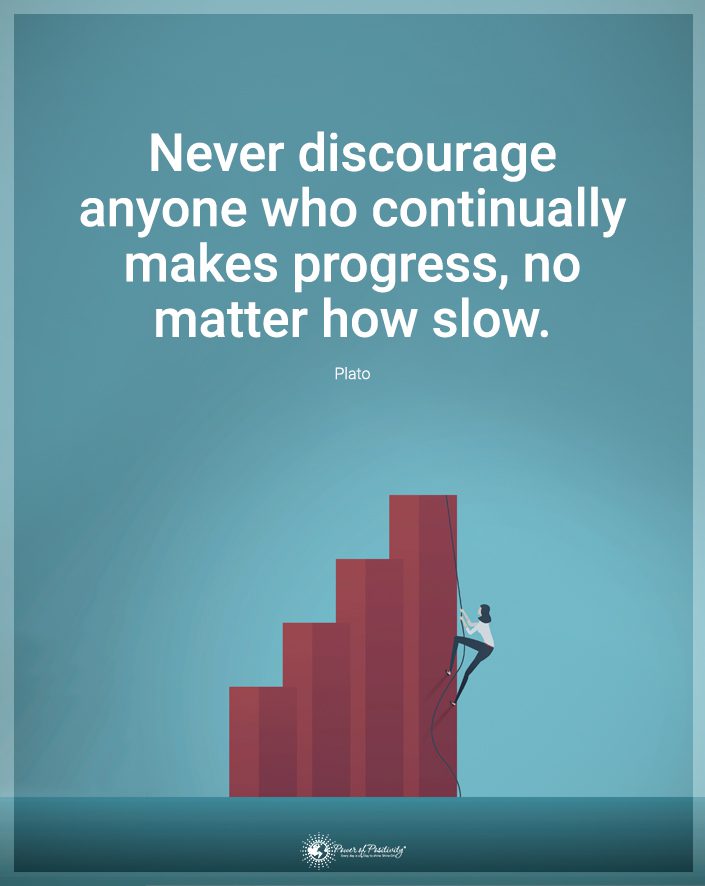Here’s why some couples may have so many arguments.
Have you ever found yourself in a heated debate with your partner, only to wonder how you even got there in the first place? You’re not alone. Across the globe, couples have arguments over the tiniest of triggers. But what if we told you that the reasons men and women argue are deeply rooted in biology and evolution?
Diving into the heart of these disagreements can shed light on the age-old mysteries of romantic conflicts. It can also offer invaluable insights on navigating and resolving them. Join us as we unravel the science behind these clashes and, more importantly, discover actionable strategies to foster harmony in your relationship.
The Science Behind Why Couples Argue
We are all products of millions of years of evolution. Our ancestors faced different challenges and played distinct roles that have subtly influenced our behaviors today. But before looking into our prehistoric past, let’s start with something more immediate: our biology.
Biology: More Than Just Chromosomes
When we think of biological differences between men and women, it’s easy to oversimplify things down to XX and XY chromosomes. However, the story is far more intricate. Men and women have distinct brain structures and functions. For instance, studies have shown that women generally have a larger prefrontal cortex responsible for decision-making. They may also have a more prominent limbic system, which governs emotions. That doesn’t mean one gender is more emotional or rational than the other; it simply highlights that our brains process information differently.
Hormonal differences further accentuate these disparities. While both genders produce hormones like estrogen, progesterone, and testosterone, the levels and effects vary. For example, testosterone, often linked to aggression and competitiveness, is higher in men. On the other hand, women’s hormonal fluctuations during menstrual cycles can influence mood and perception. Recognizing these inherent differences can be the first step towards understanding the unique ways each gender communicates and reacts.

A Glimpse into Our Ancestral Roles
Taking a step back, our evolutionary roles as hunters (men) and gatherers (women) have left an indelible mark on our behaviors. Men, as hunters, tracked and hunted down prey. It was a role that required focus, strategy, and sometimes, isolation. That might explain why, in modern times, some men prefer to “retreat” and process things internally when faced with challenges.
Conversely, women, as gatherers, collected food and nurtured the young. This role demanded collaboration, communication, and multitasking. Unsurprisingly, many women today are naturally inclined towards open communication and seeking communal support when dealing with issues.
Common Triggers for Couples Who Argue
Now that we have examined some research and history…what exactly kicks off an argument? Here are a few common themes.
The Art and Science of Communication
Communication is the lifeblood of any relationship. But it’s also one of the most common culprits behind disagreements. Expressing our thoughts, feelings, and concerns can bridge gaps or widen chasms. So why do men and women often seem to speak different languages, even when using the same words?
Research shows that men and women often have distinct communication preferences.
Men, for instance, tend to be more solution-oriented. When faced with a problem, their instinct might be to find a fix, a direct action that can address the issue at hand. At times, the problem-solving can be abstract. Although solutions are valuable, women can sometimes view them as dismissive. That may especially happen if the other party seeks empathy or validation.
Women, on the other hand, often prioritize emotional expression. Sharing feelings, venting frustrations, or being heard can be therapeutic. For many women, discussing an issue and feeling understood can be just as important, if not more so, than finding an immediate solution.
The Emotional Landscape
Emotions are complex, and their role in arguments is fundamental. Men and women have different emotional needs or ways of expressing these emotions. For instance, while both genders seek respect, how they interpret and need it can vary. A man might feel respected when his expertise is acknowledged. On the other hand, a woman might equate respect with being heard and valued.
Furthermore, misunderstandings can arise when one partner assumes the other should “just know” how they feel. Expecting a partner to be a mind reader is a recipe for disappointment. That’s because it can lead to feelings of neglect or being taken for granted.
External Pressures and Their Role
Life’s external stressors – work, finances, health, or family pressures – can significantly influence the dynamics of a relationship. Financial woes, for instance, are a leading cause of strife among couples. Disagreements about spending, saving, or financial priorities can quickly escalate. That’s especially true if underlying issues like trust or security are at play.
Similarly, pressures from extended family, differing parenting styles, or even societal expectations can start arguments. It’s essential to recognize that sometimes, the root of an argument might not be the immediate issue at hand but an underlying concern or fear.
By understanding these common triggers, couples can better navigate disagreements. It’s not about avoiding arguments altogether—after all, disagreements can be healthy and lead to growth. Instead, it’s about ensuring that couples approach them with understanding and empathy when conflicts arise. But most of all, they need a genuine desire to resolve them constructively.
5 Ways to Stop the Arguments
Arguments are a natural part of any relationship. They often signify two individuals trying to merge their distinct perspectives, values, and experiences. However, continuous and unresolved conflicts can strain even the strongest bonds. Here are five proven strategies to reduce the frequency of disagreements and address them in a healthy, constructive manner.

1. The Power of Active Listening When You Argue
Active listening goes beyond just hearing words. It’s about truly understanding and internalizing what your partner is saying. That means resisting the urge to formulate a response while they’re speaking, avoiding interruptions, and giving them your full attention. You will validate their feelings and show that you genuinely care about their perspective. Often, just feeling heard can defuse a lot of tension.
2. Steer Clear of the Blame Game
It’s easy to point fingers or assign blame during heated moments. However, doing so rarely leads to a resolution and often exacerbates the situation. Instead of saying, “You always…” or “You never…”, try expressing your feelings and needs. For instance, “I feel hurt when…” or “I would appreciate it if…”. This shift from blame to expression can pave the way for a more constructive conversation.
3. Consider Professional Guidance if You Argue Frequently
There’s no shame in seeking external help. Couples therapy or counseling can provide a neutral ground where both parties can express their feelings, guided by a professional. Therapists can offer tools, techniques, and insights to help couples navigate their unique challenges and strengthen their bond.
4. Set and Respect Boundaries
Every individual has boundaries—lines that a partner must never cross. These can include personal space, communication styles, or even past experiences. Both partners must communicate their boundaries clearly and ensure they’re respected. Recognizing and honoring these limits can prevent many arguments from arising in the first place.
5. Recognize When to Take a Breather if You Argue
Not every disagreement needs immediate resolution. Sometimes, emotions run too high, making productive conversation impossible. In such cases, stepping back, cooling down, and revisiting the issue later is okay. This break can provide clarity and perspective, allowing both parties to approach the situation calmly.
Implementing these strategies requires effort, patience, and commitment from both parties. However, the rewards—a deeper understanding, strengthened bond, and a harmonious relationship—are worth the effort.
The Role of Empathy When You Argue
Empathy is a powerful tool. In fact, it can connect two individuals, allowing them to see the world through each other’s eyes. But what is empathy, and why is it so pivotal in resolving conflicts between men and women?
Understanding Empathy
Empathy is an ability to comprehend and share another’s feelings. It’s more than just sympathy, which is compassion for someone else’s plight. Empathy involves immersing oneself in another’s emotional state, truly feeling their joy, pain, or confusion. It’s a skill that can be honed and developed with practice and intention.
Empathy in Action
Imagine a scenario where one partner comes home after a particularly challenging day at work, feeling defeated and overwhelmed. Instead of offering solutions or dismissing their feelings, the other partner says, “That sounds really tough. I’m here for you.”
This simple acknowledgment, without judgment or advice, can be incredibly comforting. It sends a clear message: “I see you. I hear you. I’m with you.”
Empathy as a Conflict Resolver
When disagreements arise, empathy can be a game-changer. By trying hard to understand where the other person is coming from, you can diffuse tension and pave the way for a constructive conversation.
For instance, try to understand the underlying emotion or need to drive your partner’s words instead of getting defensive when faced with criticism. Are they feeling neglected? Are they seeking validation? Addressing these core emotions can often resolve surface-level disagreement.
The Challenges of Being Empathetic
While empathy is a powerful tool, it’s not always easy to employ, especially during heated moments. It requires setting aside one’s ego, biases, and preconceived notions.
It demands vulnerability, openness, and a willingness to see beyond one’s perspective. However, the effort is well worth it. Empathetic interactions foster trust, deepen emotional connections, and promote a sense of safety and security in a relationship.
Final Thoughts on Why Men and Women Argue
Relationships, with all their nuances, joys, and challenges, are a journey of discovery. As we’ve explored, the reasons men and women argue are multifaceted, rooted in biology, evolution, societal norms, and individual experiences. But with every disagreement comes an opportunity to understand, grow, and forge a deeper bond.
Recognizing the triggers of conflicts, armed with tools like active listening, empathy, and setting boundaries, can transform how couples interact. Instead of viewing arguments as battles to win, view them as conversations, avenues to understand and be understood.
It’s essential to remember that no relationship is perfect. Disagreements are natural, even healthy. They challenge us, push us out of our comfort zones, and prompt introspection. The goal isn’t to eliminate arguments but to ensure they’re constructive, leading to growth and understanding.


















